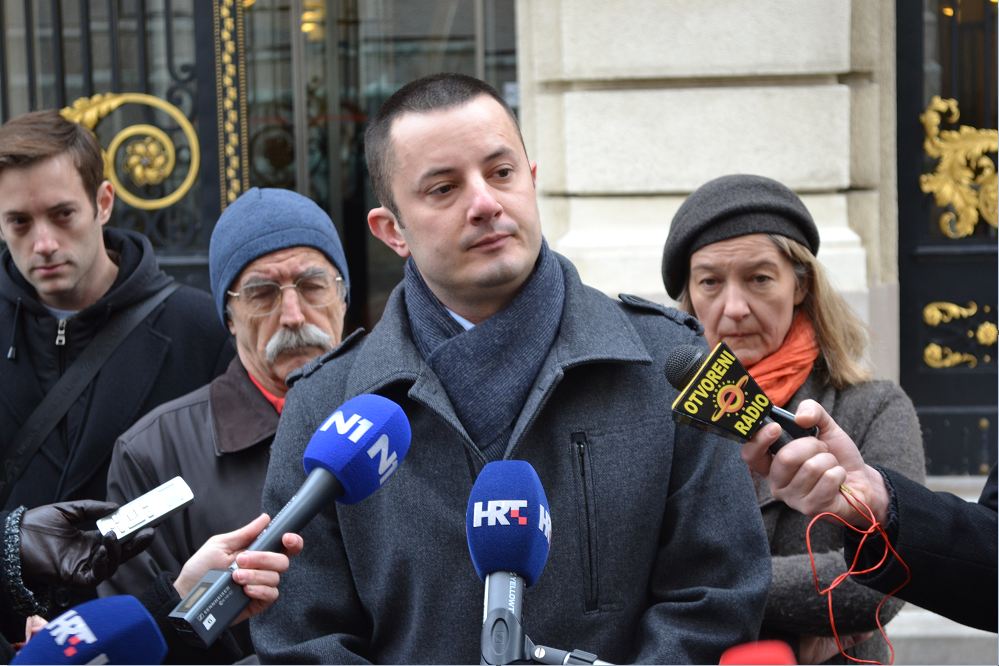Leaders of nongovernmental organisations gathered in the civil society organisation “All of us for a Croatia of all of us” on Thursday commented on reports that the ruling Social Democratic Party (SDP) would amend electoral legislation to prevent from running in parliamentary elections persons sentenced to prison sentences of more than six months until the end of their rehabilitation period, saying the ban should apply only to persons convicted of the gravest cases of crime and abuse of office.
It has been rumoured in Parliament that the SDP’s amendment is aimed at preventing Radimir Cacic, a former member of the SDP’s junior partner the HNS and now leader of the People’s Party – Reformists who has served a prison sentence for a car accident with two fatalities in Hungary, to run in elections. Cacic, who used to be a top official of the Croatian People’s Party (HNS) fell out with the party leadership in the meantime and was ousted a year ago.
The latest changes of the SDP-sponsored amendment to the election legislation have given rise to speculations that the SDP has thus given in to pressure from the junior partner. Presenting their own amendment to the election law outside the parliament building, the NGOs told reporters that their proposal for an election ban on persons who had served a prison sentence to be in force until the expiry of their rehabilitation period would refer only to the gravest crimes, from murder to genocide, and to abuse of office.
The other convicted persons would be banned from running in elections only if at the moment when elections are called they are serving their sentence or are about to serve it. Zoran Pusic of the Civic Human Rights Committee (GOLJP) said that the SDP’s amendment would not prevent the election to the parliament of “a person convicted of the gravest war crimes whose verdict the Constitutional Court has quashed solely for procedural reasons, not questioning the evidence based on which his final verdict was made.”
“Not only does this compromise the parliament’s reputation, it poses a danger to Croatia, to the Croatia that is based on the rule of law and that tries to be a decent state for all its citizens. As for the possibility that a person who has been convicted of the gravest war crimes or economic crimes can be elected to the parliament and pass laws, we can only ask ourselves with unease how it will affect the social climate in the country. This is not democracy, this is the worst example of abuse of democracy and it requires action,” Pusic said, explaining that he was referring to politician Branimir Glavas.
Dragan Zelic of GONG, a nongovernmental organisation for election monitoring, said the election law should ban persons convicted of the gravest war crimes such as war crimes and abuse of office from running in elections. Zelic said that a parliamentary vote on amendments to the election law scheduled for Friday would be a test for all political parties, showing how much they were committed to fundamental constitutional values. “We hope that members of Parliament will understand their responsibility and political duty,” said Zelic.
Commenting on a reporter’s remark that the amendment they were proposing would not prevent Glavas from running in parliamentary elections since the Constitutional Court had quashed his final verdict, Zelic confirmed that the amendment proposed a ban on persons with final court verdicts for the duration of their period of rehabilitation. “I won’t comment now on concrete cases. I recall the Constitutional Court’s opinion of 2011 in which the Court responded to an inquiry by the State Election Commission and stated that Glavas could not head an election slate,” Zelic said. The Constitutional Court, however, gave that opinion at the time when the final verdict against Glavas was in force.
Commenting on the Croatian People’s Party (HNS) amendment on preferential voting which in certain situations gives advantage to a candidate based on their political affiliation rather than the outcome of preferential voting, Zelic said he regretted that the ruling coalition did not accept GONG’s proposal for three preferred votes and the election threshold of 5% and that it had opted to introduce preferential voting in its minimum scope. “In any case, voters’ votes should come before political parties,” Zelic said.
